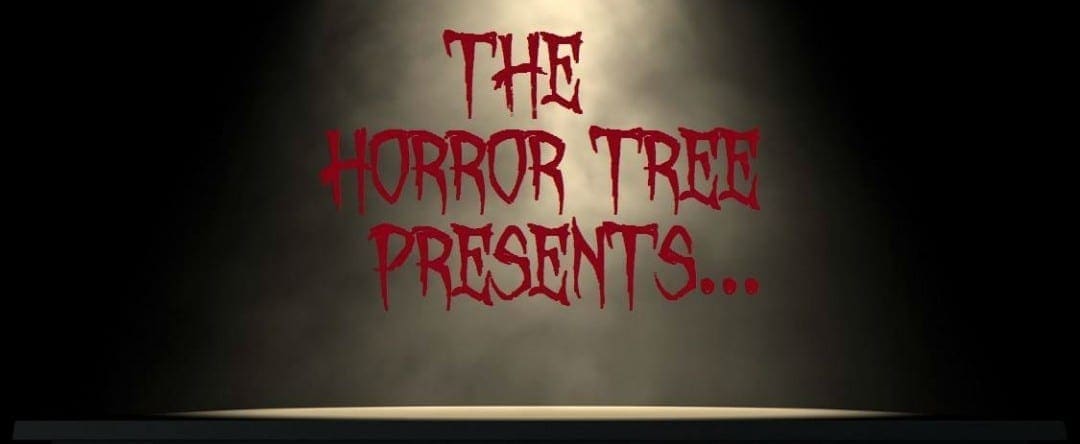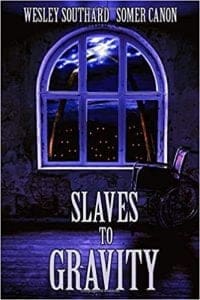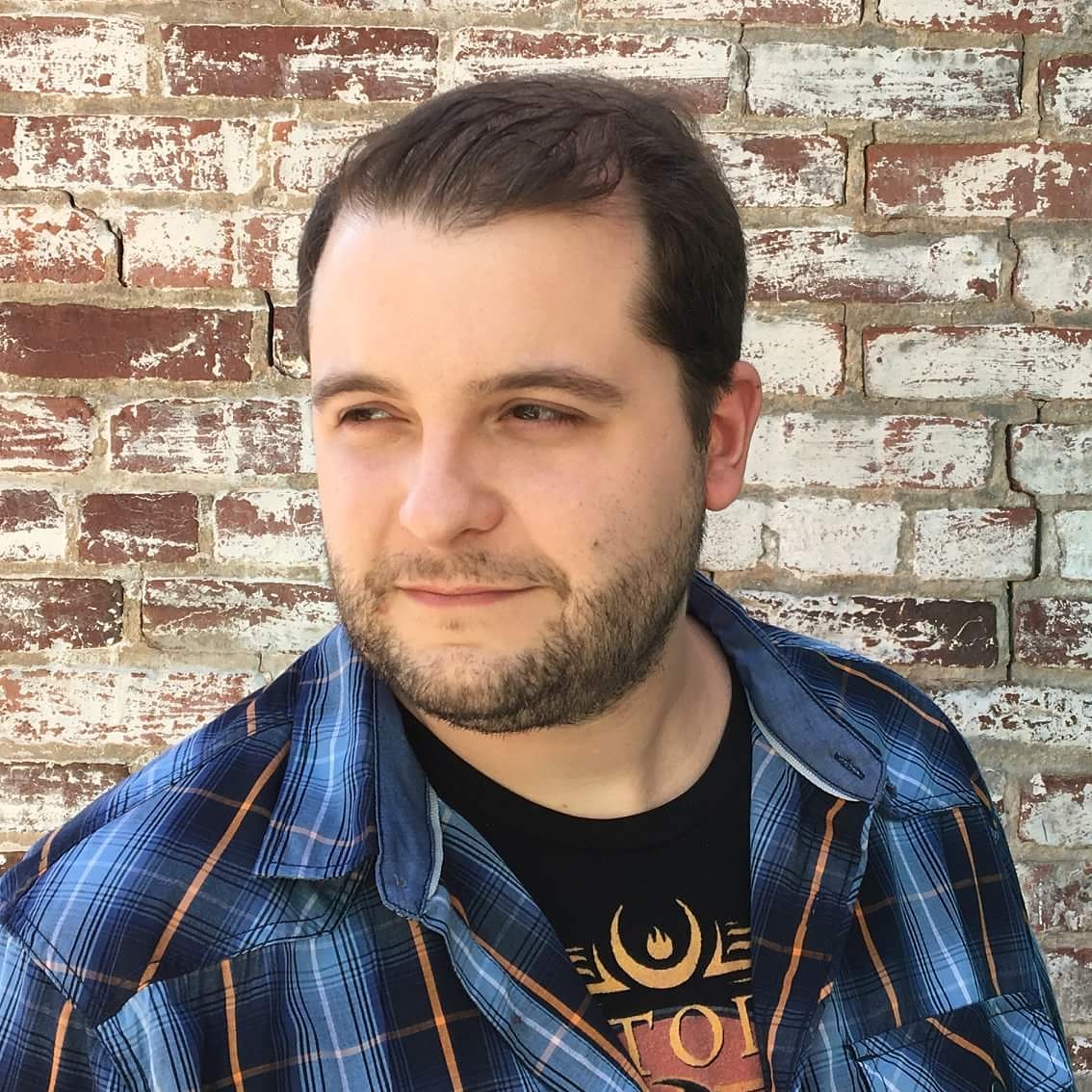The Horror Tree Presents…an Interview with Wesley Southard and Somer Canon

Interview with Wesley Southard and Somer Canon (authors of Slaves to Gravity) 
by Alyson Faye.
Q1) How did your writing collaboration come about? Is this your first joint project? And after the success of Slaves to Gravity, will there be more? (Reading Slaves to Gravity, I felt it could be the first of a trilogy with Charlie as the heroine.)
SC: Wesley had the idea for the story and asked me if I was interested in co-writing with him. I still feel so green, especially compared to so many, and I always thought that I would feel intimidated by working with another author, but Wesley and I are such good friends and I’m really comfortable with him, and I decided to go for it. Wesley is a really imaginative writer and I think that his strong suits tend to be places where maybe I could use a boost, especially when writing with such talent, but he never made me feel like I wasn’t carrying my own weight in this work. It’s a first collaboration for me, and I’m happy to say that I’d totally be down for writing with Wesley again.
WS: After I moved to Pennsylvania from Indiana, Somer and I became good friends through our mutual author friends. We hit it off pretty quickly, and after reading her work, I knew I wanted to work with her someday. When I felt the time was right to start my first long-form co-writing project, there was no other person I wanted to work with. This wasn’t my first collaboration. I wrote a novelette about ten years ago (with a friend) called “Home Invasion”, which appears in my short story collection Resisting Mad
ness. As far as the success of Slaves to Gravity, we’re both incredibly thrilled about it. We weren’t sure what people would think, but the reception so far has been overwhelmingly positive. I’ve seen a lot of people ask about a possible sequel in their reviews. Never say never, but I personally feel like the story has a very definitive ending, but you never know. I would absolutely work with Somer again if she wanted to.
Q2) As a writer myself, I’m really interested in the logistics of co-authoring a novel. How did you structure it? Did you say – write alternate chapters? Or did one of you write particular characters? Did you brainstorm and put ideas down on a virtual whiteboard?
 SC: Wesley had a lot of the framing of the story already locked in his head and we worked around that. We wrote alternating chapters and sort of started having fun leaving complicated cliff hangers for the other to deal with. I always looked forward to getting Wesley’s chapter and would always laugh at the situation he left for me. We would do light brainstorming sometimes, but really, a lot of this was us just winging it.
SC: Wesley had a lot of the framing of the story already locked in his head and we worked around that. We wrote alternating chapters and sort of started having fun leaving complicated cliff hangers for the other to deal with. I always looked forward to getting Wesley’s chapter and would always laugh at the situation he left for me. We would do light brainstorming sometimes, but really, a lot of this was us just winging it.
WS: We decided early on to simply flip-flop chapters. Even though I had worked on a collaboration before and Somer had not, we were both pretty nervous and needed to take it slow to feel one another out. We also decided before we started that we did not want to try to ‘one-up’ one another with our chapters. We wanted one cohesive narrative and didn’t want the readers distracted by the battle of “gotcha’s” between the authors. For me personally I find that distracting when reading a collaboration. I shouldn’t be able to tell who’s writing which chapter. I should only be invested in the here and now with the characters and their journey. 
The characters themselves were created by both of us. I originally wanted the protagonist, Charlie, to be the main focus. Somer introduced the rest of the cast, and we developed their personalities and back stories as we went. The only character that was truly mine was Tanya, who, while writing the book, I realized I could fit in seamlessly. She’s a minor character in a short story of mine called “Arrearages” and she, too, experienced extreme trauma, which I realized would work perfectly in the context of the current story. I loved that we were able to fit her in as an Easter egg of sorts.
Q3) As writers, are you ‘Planners or Pantsers’? (Generally; not just when writing Slaves)
SC: In general I am a proud Pantser. Wesley is more of a planner and that happened a bit in Slaves, but there was quite a bit of pantsing that went into the creation of the story as well.
WS: Me personally—I’m a planner. I outline every single writing project I do, from flash fiction up to novels. I like to have the story completely ready to go before I start to type the opening line.
Q4 ) How long did the planning and writing of Slaves to Gravity take? And where did the idea for this rather unusual tale come from?
SC: From the idea being laid out to us submitting the manuscript to Ken McKinley at Silver Shamrock, it was less than a year. The actual writing took four or five months and we spent maybe a month and a half tightening up the story.
WS: The idea was something I had in my head for several years. When I come up with story ideas, my brain conjures specific, cinematic scenes, and the very last scene of Slaves to Gravity had been playing over and over in my head with zero context attached. Whatever that scene was, I had to know the rest of this story. Before I approached Somer about the project, I came up with a general idea of what we could do. We talked on the phone about it and then a few weeks later we met up at a diner halfway between both of our homes and spent several hours with notebooks, hashing out the story and what we could do with it. It was a really fun process.
Q5) Do you write with pen/paper or pc? Drink coffee or tea? Have music on or off? Work in a study or the garden shed or somewhere else?
SC: I use both pencil/paper and PC. I don’t drink much caffeine because I lose my mind a little, so I drink lots of water. I sometimes have music on, but it depends on if my children are marauding about. I need to be able to hear what they’re getting up to. I have a really neat writing room that I do most of my work in, but I do change the scenery on occasion by going outside or sitting on the couch.
WS: I don’t like to write longhand. I do my outline on paper, but everything I commit to goes down into my laptop. I usually have a soda or water with me in my home office, and my ear buds are smushed into my head with music going at a low volume. It took me until earlier this year to be able to write with music playing and not be completely distracted.
Q6) Have you both always written dark/supernatural/horror fiction?
SC: For the most part, but my first published story was a piece about pancakes! After that, it was all dark and gruesome.
WS: I’ve always preferred to write horror, but after seeing that I can write some form of sci-fi, as we did with Slaves to Gravity, I would be more willing to see what can come from that experience.
Q7) Do you both read that genre? If so, which authors and books stand out for you, or have influenced you?
SC: I absolutely read the horror genre. I am a fan first, always and forever. I grew up reading paperback horror novels that my grandma kept stacks of in her house, but the first one that really blew me over was The Haunting by Ruby Jean Jensen. That book made me afraid to put my feet on the floor for fear of the thing under the bed, the thing from the book, getting me. As I got older, I graduated to Stephen King and some Dean Koontz, but the foundation of my fandom will always be Ruby Jean Jensen. As for some more contemporary authors that really do it for me, I love Wesley’s work as well as Mary SanGiovanni, The Sisters of Slaughter, Tim Meyer, James Newman, Kenzie Jennings, and Jonathan Janz. Look, if I named everybody, I’d be here all day, but those names are names I always love to see being published.
WS: I’ve always been a huge horror fiction nut. My biggest inspirations for becoming a writer were Brian Keene, J.F. Gonzalez, and Tim Lebbon, but I feel my personal writing style was and continues to be heavily influenced by Graham Masterton, and Ray Garton. I adore Masterton’s storytelling ability, and I’ve tried to adapt the way Garton writes action scenes and tension. As far as newer, more current authors, I think writers like Kristopher Triana, Aaron Dries, and Somer Canon are leading the way for the new generation. Each has such a unique voice and are highly readable and enjoyable.
Q8) What are you currently reading?
SC: I’ve just started Red Dragon by Thomas Harris. I’ve seen the movies and shows and it’s about time I got to the books.
WS: I’m actually beta-reading a new horror western for Kristopher Triana, which will be out soon from Death’s Head Press.
Q9) Do you gain inspiration from films and/or music? Can you name a fave film or album or artist whose work has inspired or influenced you as a writer?
SC: I get very light inspiration from music. My music tastes are all over the place. This is going to sound so weird, but I think the movies that I get the most inspiration from for my writing are those horrible, cheap, sequel movies that we got a lot of in the ‘80s and ‘90s. Like Children of the Corn III and The Howling V. These movies didn’t take themselves too seriously, and if they did it came off as hilarious as opposed to terrifying, and I really like highlighting the absurdity of a horror story. I tend to add humor to my work, or course, but I think that it offsets the heavier parts wonderfully.
WS: My favorite film ever is From Dusk Till Dawn, and I feel that movie has influenced me more than any other. I adore the characters, the atmosphere, the tension, the dialogue, and the action and gore. I’m forever searching for my perfect vampire novel idea because of that movie.
Q10) What was the best piece of advice you’ve ever been given as writers?
SC: Take all advice with a grain of salt. There is no one-size-fits-all writing career.
WS: Have patience. This can be a painful, slow moving business.
Q11) Do you belong to a writers’ group or bounce ideas off each other, or other writing friends?
SC: I’m a member of the Mid-Atlantic Dark Fiction Society. I, personally, am not terribly comfortable talking openly about my works in progress with many people, but I like talking shop with other writers.
WS: I don’t belong to an official writing group, but I live around enough creative people who I’m constantly bouncing ideas off of. They’re a massive help.
Q12) How involved are you with social media? Where can fans and followers find you online?
SC: I’m present on social media, but I prefer to be a more light presence, a distraction. You can find me on Twitter (that’s where I’m usually hanging out), Facebook and Instagram. (And here somercanon.com)
WS: I’m always hanging out online. I’m pretty easy to find on Facebook, Twitter, and Instagram, and I try to keep my website (www.wesleysouthard.com) as updated as possible.
Thank you, Wes and Somer, for the interview. It’s been great and really interesting.
SC: Thank you!
WS: Thank you!
- About the Author
- Latest Posts
Alyson lives in the UK; her fiction has been published widely in print anthologies – DeadCades, Women in Horror Annual 2, Trembling with Fear 1 &2, Coffin Bell Journal 1 and Stories from Stone and in ezines, most often on the Horror Tree site, Siren’s Call and The Casket of Fictional Delights. In May 2019 Night of the Rider, was published by Demain, in their Short Sharp Shocks! E book series and reached the amazon kindle top 10 best seller lists. Her work has been read on podcasts (eg Ladies of Horror), shortlisted in competitions and published in charity anthologies. Future work will appear in anthologies from Things in the Well, Mortal Realm and Twisted Wing Publishers.
She performs at open mics, teaches, edits and hangs out with her dog on the moor in all weathers.
https://alysonfayewordpress.wordpress.com/
Twitter @AlysonFaye2












